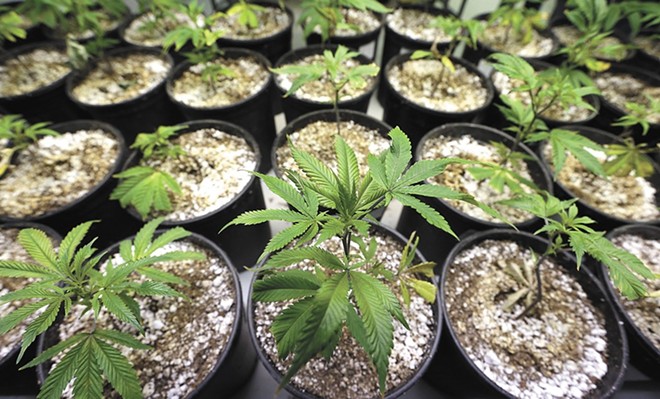Readers respond to an article on Inlander.com about a new report that shows more marijuana businesses in lower income neighborhoods in Washington (11/21/19):
Kevin P. Finnegan: All the "good family neighborhoods" push to keep the shops elsewhere. This isn't about taking advantage of the poor, other than elitist thinking of "not in my neighborhood!"
James Miron: There's a goodly number of outlets in some relatively upscale retail areas. People I know don't mind driving to their favorite shop for the deals they want. I patronize a specific shop for the military discount, 20 percent off months and $150 ounces despite it being a three-gallon round trip.
Virginia Kneib: Um yeah. There are more small businesses in poorer neighborhoods overall. It's hard to afford retail space anywhere else. And Kevin P. Finnegan is right.
Michelle Flowers: Gee, maybe poorer people feel they have more to escape from. Or, they work too damn hard and constantly push a hurting body.
Dave Doran: Zoning and local site restrictions are responsible for this result.
Teresa Brooks: Help the black men who were jailed and penalized for this... then I'd be happy.
Andi Daum: No shit! Real estate prices are skyrocketing! Where in the hell do you expect a small business to move to! ♦
Readers respond to an article about recycling batteries for electric vehicles ("Mining What's Already Been Mined," 11/24/19):
Nik Corr: Step one is to stop burning coal to make electricity. The only thing that doesn't also require tons of cobalt is nuclear. Storage and recycling nuclear waste is way more manageable than commonly known, and it's got the lowest deaths per kilowatt hour of any energy source by a lot. If only this country wasn't so deeply superstitious, nuclear could have solved our problems a long time ago.
Marian Norton: It's right up there with charging ahead with nuclear power plants with no forethought on how to deal with the leftovers.
David Valenta: Hit up the hydrogen conversion with water-as-waste product. Every region is going to have one advantage over another: wind, sun, geo, water, etc. If and when we update the (national) energy grid, it will serve best to have local and regional options that optimize those local advantages.♦


